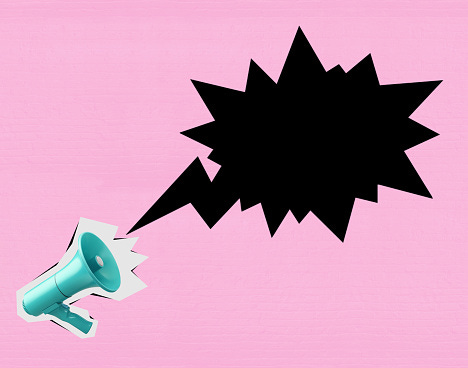Instead of Yelling...Try This
Quick tips to try instead of yelling
Welcome to Raising Good Humans on Bulletin. We are so happy you're joining our judgment-free, science-backed parenting community. Subscribe now to get these articles in your inbox every week, AND consider becoming a premium member for exclusive behind-the-scenes access, LIVE Q&A's, and more original content.
When we are in a reactive state (think: fight/flight/freeze), even the calmest of us can find ourselves yelling as our form of “fight."
Here are a few quick tips to try instead of yelling:
Start with self compassion. Shame shuts down our thinking brains and can leave us paralyzed. Channel the voice of a trusted friend, and show yourself some compassion. The yelling does not define you. Even loving, supportive, caring, and dedicated parents yell sometimes. Relationships can withstand mistakes, and research shows the healthiest of them grow from the repair after discord.
Try and keep it simple. While you may not be able to stop yourself from yelling, try and control the words coming out of your mouth. A loud scream is better than resorting to name-calling, insults, or shaming. Reminder, shaming is not correcting behavior, shaming is telling your child that WHO they are is a problem instead of explaining that WHAT they did was the problem. Yelling, “Stop right now,” does less harm to your relationship than saying, “Why are you such a horrible listener,” which makes your child feel like the yelling is about who they are as a person, not their actions.
Identify your triggers. Understanding the moments or situations that set you off can help you not to respond in anger. This may include paying attention to times when your body gets tight, sweaty, or your heart races. Our bodies have many physical signs of agitation that can warn us long before the yelling comes. Create a plan to handle those pain points, and ask for help if you need it. For example, consider having a partner help with bedtime if the routine makes you anxious and prone to yell. You may also want to create a mantra to remind yourself that the anger is likely to come. For example, “I am not being chased by a bear. I can breathe.” Preparing for the feelings can make your reactions less intense and overwhelming.
Find your calm. Each of us has a few tools to use when we are dysregulated. It may be some deep breaths, jumping jacks, or a cold splash of water. Find what works for you and call on it often. Take a moment to walk away - and let your child see you calm yourself in a healthy and well adjusted way. They are learning what THEY can do when those feelings arise in them.
Rely on routines. Having consistency can help to smooth out stressful parts of the day. Often, arguments and power struggles increase when limits have not been explained or enforced. Be consistent in your routines and responses whenever possible. This will help your child know what to expect and behave accordingly.
See the big picture. Development doesn’t happen overnight. You may think that your child should “know better already,” but they are growing and learning each day. Make sure that you have an accurate take on what they can and can’t be expected to do, and take a big picture view of their development when you can. Have patience with their process, and with your own. Parenting is NOT easy or fast.
Understand the limits of control. Despite our best intentions, we cannot control what other people (including our children) do. Remember that you are responsible for creating a safe and nurturing environment for your child, for loving them unconditionally, and for building a relationship that supports their development. You are NOT responsible for every choice they make, action they take, or mistake that occurs along the way.
Prioritize your relationship. Work on building an open and supportive connection with your child at any age. Spend quality time together outside of the daily grind, take a walk, a drive, or eat a meal side by side. Let your child talk openly to you, and practice listening. When you come to appreciate who they are, your anger about who they aren’t may dissipate.
Reset. After you’ve yelled, they’ve yelled, and everyone is exhausted, offer a genuine apology and reset (See these tips for how to do that). Acknowledge the feelings and find a new point of connection. There are millions of opportunities to repair and move forward, and each one builds our resilience and capacity.
Seek help. If you worry that your anger is frequent or overwhelming enough to go beyond these tips, check in with your healthcare provider. There are many tools to help support you, and asking is the most important first step. As with so many things, getting the help you need, helps your child and family. You can be a powerful model for self improvement.
All of these tips represent work we will do in the Mindfulness for Parents course I am offering to premium subscribers on bulletin. Become a paid subscriber today and get access to this event (and much more). For the price of only one latte a month.
Join me in 4 LIVE Sessions to learn about Mindfulness Practices for Parents. Registration and ZOOM information to follow. Session Dates: May 2nd, 9th, 16th and 23rd.
Warmly,
Thanks for being a part of Raising Good Humans. We are in this together.



